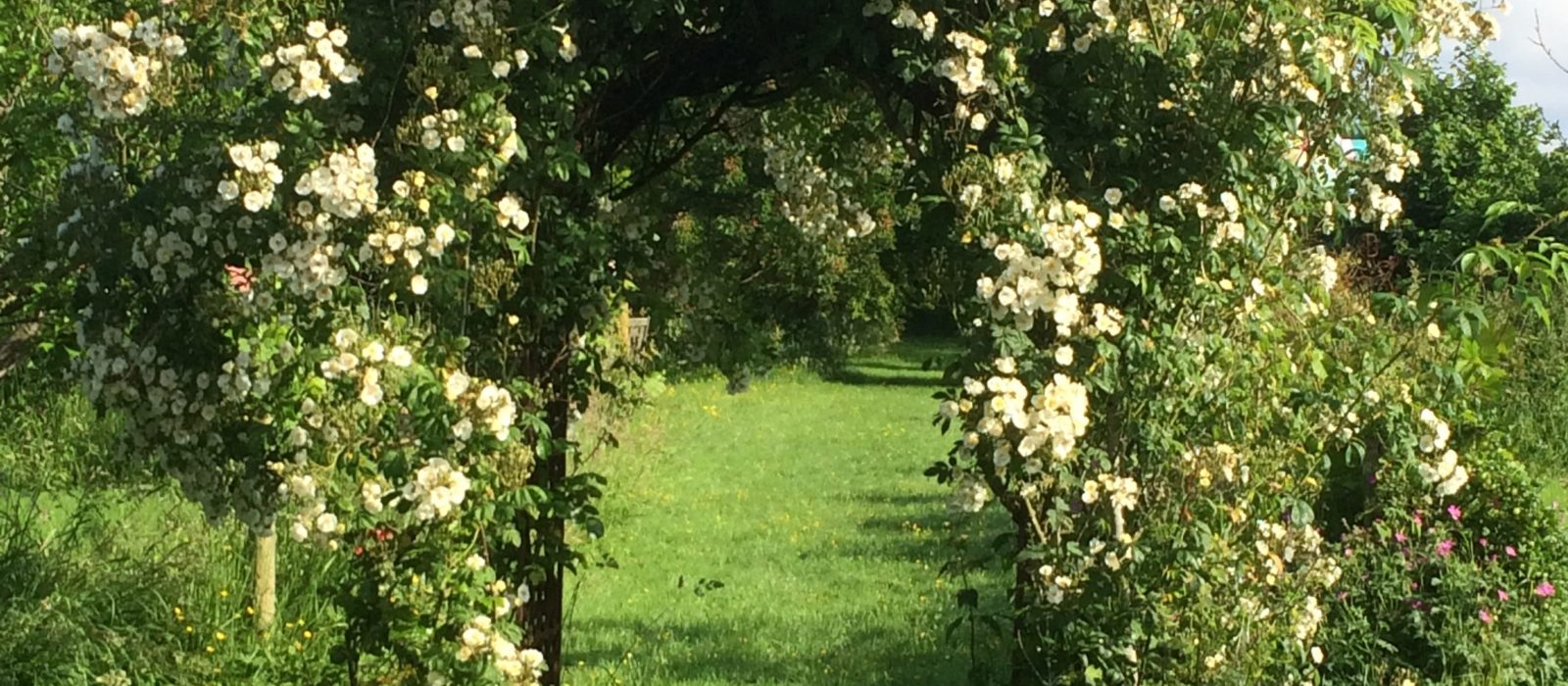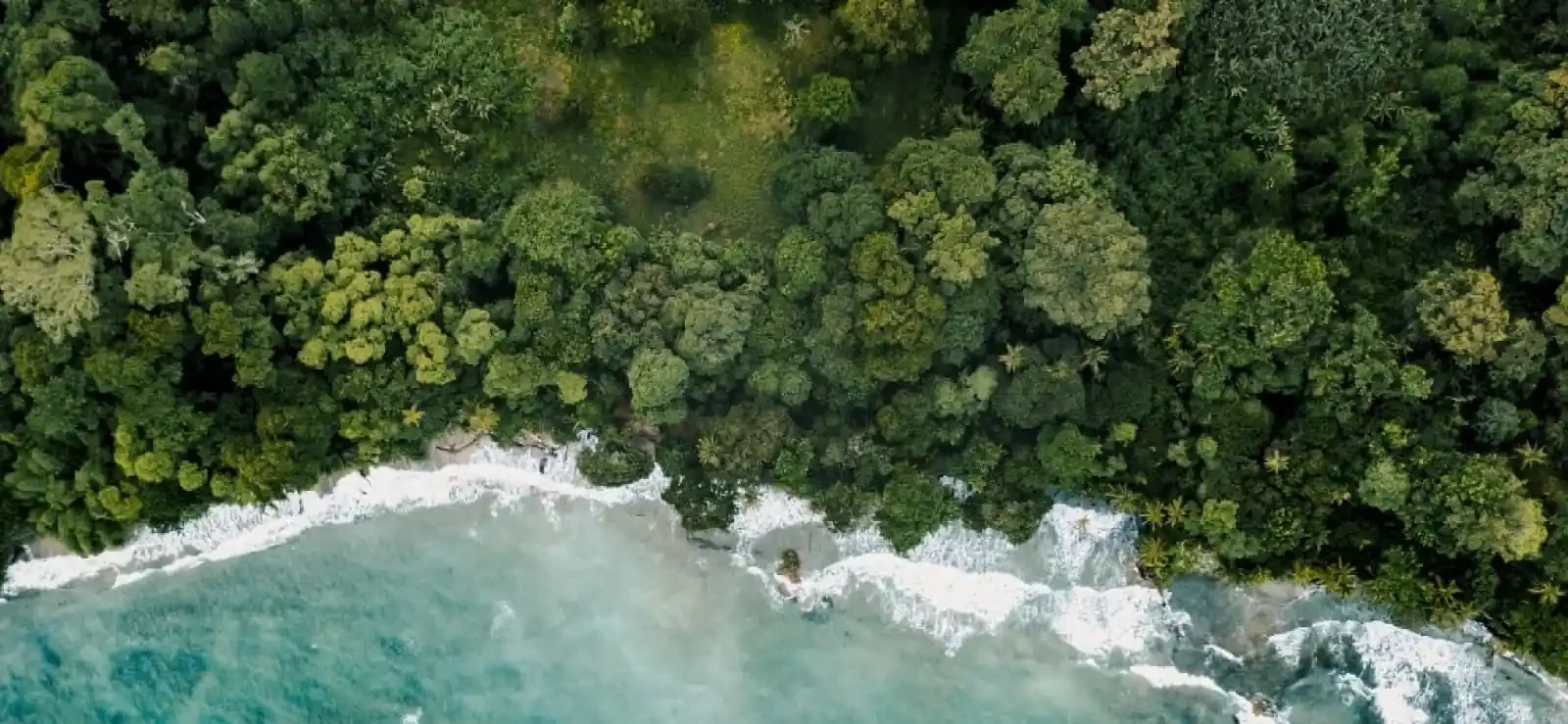Published on: March 22nd, 2018
Last updated: September 24th, 2024
As part of Women's History Month in March and International Women's Day on the 8th, we are conducting a series of interviews with interesting and inspirational women in travel. From adventurers to conservationists, guides to rangers, there are some amazing women out there, and here's what a few of them have to say.
The fourth in our series is lawyer turned award-winning landscape gardener Anthea Guthrie. Her love of gardening started at a very young age, but only made her lifelong hobby her career later in life. Having picked up plenty of medals, including from the prestigious Chelsea Flower Show, Anthea now offers amazing tours in her beautiful gardens and travels the world giving talks.
As an established lawyer, turned award-winning gardener, what would you say has been your greatest achievement?
My greatest achievement was my first gold medal for ‘The Mayflower’ garden – I produced the ship at dock and displayed plants that would have been taken on the journey and showed how they survived. On the deck I displayed plants found in the new world. I lived and breathed the Pilgrims for a year before the show, it was an example of desperate people taking huge risks against all odds to create a new life for themselves. I do a talk about their journey from a gardener’s point of view – one of my favourite talks.
Why and how did you make the transition? Was there a particular event or catalyst for doing so?
I realised I didn’t need to carry on with the law after our mortgage was paid off! I put an ad in our local weekly paper to do garden maintenance and spent the extra year pruning and weeding. Then I enrolled on a part time horticulture course at a local college to hone my skills. Just after that the RHS had their first spring show in Cardiff near where I live and invited the students to produce a garden. They chose my design and that was my first garden – it featured a washing line with washing made of glass, the judges loved it! Two years later I did my first Chelsea garden.
What was your biggest challenge?
My biggest challenge was on my first cruise as a speaker at the beginning of my first talk in front of 400 people. The technician dropped my laptop and broke it so I had to extemporise. Basically I spent the cruise in my cabin writing up six talks.
Did you encounter any negativity along the way, particularly as a woman?
I haven’t come across any negativity at all so far, gardeners are really lovely, generous people and that extends to the whole industry. That ingrained ethic where if someone likes something in your garden and you automatically give them a cutting or a root seems universal amongst us all. Certainly at shows we are always donating to or swapping plants with each other.
I Read That You Work With Disabled Children A Couple Of Days A Week - What Do They Do And How Does Gardening Have A Benefit For Them?
I work with children who have profound special needs one day a week. We have three acres so there’s loads of space. Since I started there ten years ago we’ve acquired chickens and bees as well as planted different types of gardens. I must say every child there can do more than they think at first. It’s the best fun – they are disarmingly honest and wonderful company. We have them from 4 to 19 years, it’s interesting watching them grow up. We started off all very worthy growing veg but they much prefer fruit so I’ve planted a fruit orchard – we press our own apple juice now! I grow plenty of flowers for cutting. They make mothers’ day bouquets to take home and flower arranging is very popular.
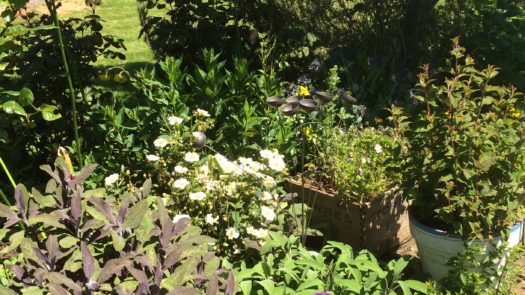
Is There Anything You Would Like To Achieve In Gardening In 2018 Or Beyond?
My 2018 is already very full with nine trips – I’ve just got back from Argentina and Chile. I’m doing a big trip to Australia and Tasmania in September which I’m very excited about – it includes tuition from an aboriginal apothecary about natural native medicine. My main aim at home is to keep on top of the weeding – I have an acre to maintain and it’s all organic so very labour intensive. Luckily I love weeding!
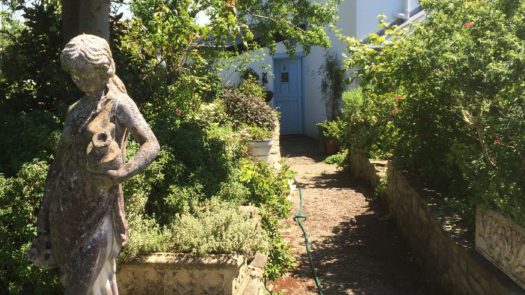
Can you tell me more about the guides and tours you offer clients?
I’m a botanic guide now and can offer private tours which include privately owned gardens. We are blessed in the UK with a huge choice of gardens to visit. I am very interested in garden history and enjoy giving guests an insight into the places I take them- anything from ultra formal to folksy cottage to allotments to organic farms. Our heritage is fabulous and it’s so lovely to share it.
You also do a fair amount of travelling, doing guest talks on cruise ships - Where have you travelled to? And where has been your favourite place so far?
I speak on cruise ships and do botanic guiding and talks on smaller expedition ships, it’s opened up the world for me. Last week I was looking at wild orchids on a trek in Chile with the snow capped mountains as a backdrop! I am very, very lucky and it is very good for my geography. Quite honestly my favourite cruise is one I have done for six years running for Botanica which is up the west coast of Britain. I am so proud to be British on that trip, showing guests our most beautiful gardens. Costa Rica comes a close second!
What would you say your passion is?
My passions are, after family of course, discovering new places and meeting fellow gardeners. Last year I researched organic farming in Cuba and visited an organic city farm just outside Havana. My husband said he’d never seen me so happy – it was because all the theoretical research I’d done had become a reality right there. I’m planning to volunteer there next year if they’ll have me.
Who or what inspires you?
What inspires me are women who have gone ahead and become confident in themselves by taking a leap of faith. They include Marianne North, the spinster vicar’s daughter who travelled all over the world to paint plants in situ – her gallery is in Kew Gardens. I have a soft spot for grumpy Gertrude Jekyll, the Edwardian garden designer who donated plants from her own garden to the war graves in Europe – she wanted our boys to each have a little English garden at the base of each gravestone. Some of the varieties she sent can still be seen.
What are you most proud of?
I am most proud that wherever I’ve lived or worked I’ve planted fruit trees. In the past my predecessors did that for all of us and it’s nice to continue so that future generations will benefit.
How Do You Hope To Inspire Other Women?
I want to encourage women and girls to realise they can have a choice in what they do. My 8 year old granddaughter has already noticed there are hardly any superheroes who are girls ‘and that’s not fair’. I want her and all girls to understand they can be ambitious but still be kind, to love and appreciate nature, to get their hands dirty and still be girls. I want them to take risks! If I was a fairy godmother I would give the gift of resilience.
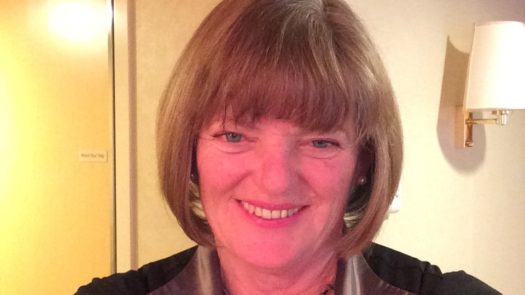
What Would You Say To Any Women Trying To Break Into The Horticulture (or Legal!) Industry?
My advice to anyone starting any career is to expect to start at the bottom and never stop educating yourself. The more you put in to work the more you get out of it. The more you learn the more you realise there is to learn, and that saves you from being bored ever again. Say yes to every opportunity and always tell yourself ‘I can do this’. Be a team player! Almost everyone is a very nice person. Competitiveness for the sake of it is a waste of time – be genuinely delighted at someone else’s success. Be scrupulously honest.
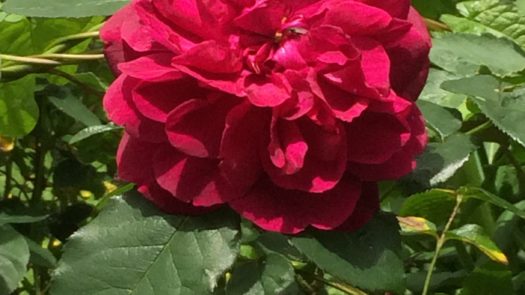
Take a trip to England and visit Anthea's beautiful award-winning gardens.
